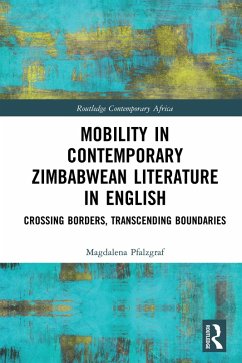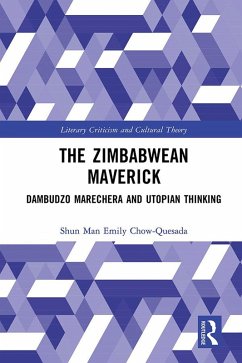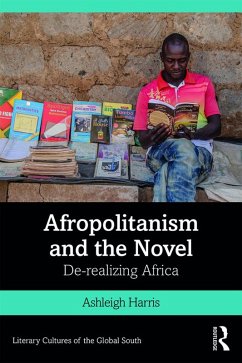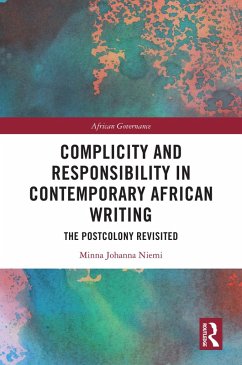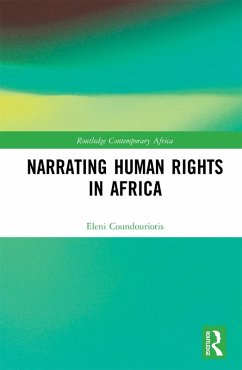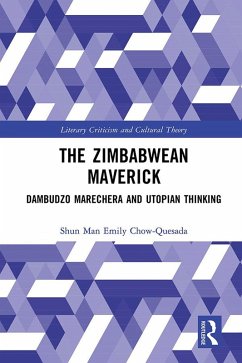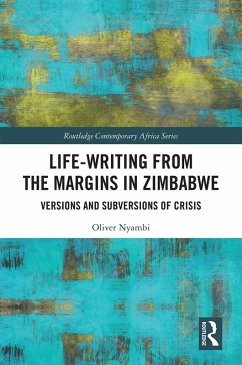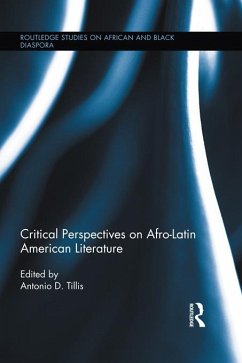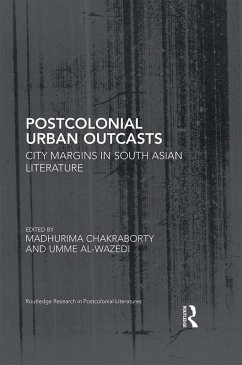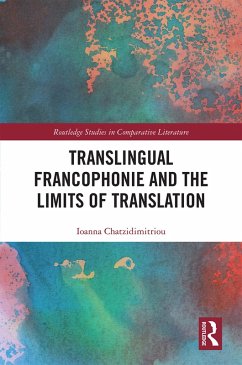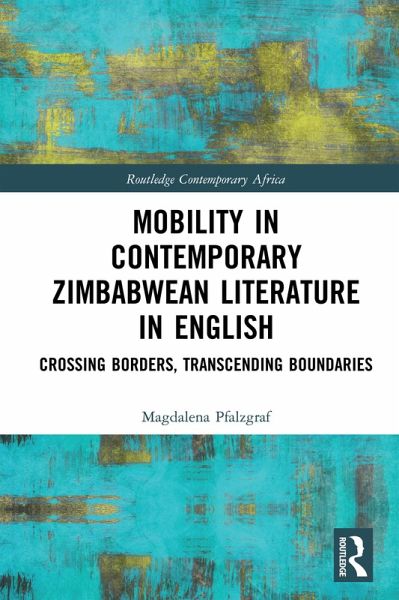
Mobility in Contemporary Zimbabwean Literature in English (eBook, ePUB)
Crossing Borders, Transcending Boundaries
Versandkostenfrei!
Sofort per Download lieferbar
41,95 €
inkl. MwSt.
Weitere Ausgaben:

PAYBACK Punkte
21 °P sammeln!
This monograph explores the concept of mobility in Zimbabwean works of fiction published in English between the introduction of the controversial Fast Track Land Reform Programme and the end of the Mugabe era.Since 2000, Zimbabwe has experienced unprecedented levels of transnational out-migration in response to the political conflicts and economic downturn often referred to as the Zimbabwe Crisis. This, in turn, has led to an increased outpouring of literary texts about migration, both in locally produced texts and in works by authors based in the diaspora. Situating Zimbabwe's recent literary...
This monograph explores the concept of mobility in Zimbabwean works of fiction published in English between the introduction of the controversial Fast Track Land Reform Programme and the end of the Mugabe era.
Since 2000, Zimbabwe has experienced unprecedented levels of transnational out-migration in response to the political conflicts and economic downturn often referred to as the Zimbabwe Crisis. This, in turn, has led to an increased outpouring of literary texts about migration, both in locally produced texts and in works by authors based in the diaspora. Situating Zimbabwe's recent literary developments in a wider context of Southern African writing and history, this book focuses on texts that portray movement within Zimbabwe's cities, between village and city, to South Africa, and overseas. The author examines important developments and trends in recent Zimbabwean literature, investigating the link between state authoritarianism and control of mobility, and literature's potential to intervene into dominant political discourses. The book includes in-depth analyses of ten recent works of fiction published in the post-2000 era and develops mobility as a key category of literary analysis of Zimbabwe's contemporary literatures.
Setting out a rich dialogue between literary criticism and mobility studies, this book will be of interest to researchers of African literature, Southern Africa, migration, and mobility.
Since 2000, Zimbabwe has experienced unprecedented levels of transnational out-migration in response to the political conflicts and economic downturn often referred to as the Zimbabwe Crisis. This, in turn, has led to an increased outpouring of literary texts about migration, both in locally produced texts and in works by authors based in the diaspora. Situating Zimbabwe's recent literary developments in a wider context of Southern African writing and history, this book focuses on texts that portray movement within Zimbabwe's cities, between village and city, to South Africa, and overseas. The author examines important developments and trends in recent Zimbabwean literature, investigating the link between state authoritarianism and control of mobility, and literature's potential to intervene into dominant political discourses. The book includes in-depth analyses of ten recent works of fiction published in the post-2000 era and develops mobility as a key category of literary analysis of Zimbabwe's contemporary literatures.
Setting out a rich dialogue between literary criticism and mobility studies, this book will be of interest to researchers of African literature, Southern Africa, migration, and mobility.
Dieser Download kann aus rechtlichen Gründen nur mit Rechnungsadresse in A, B, BG, CY, CZ, D, DK, EW, E, FIN, F, GR, HR, H, IRL, I, LT, L, LR, M, NL, PL, P, R, S, SLO, SK ausgeliefert werden.




